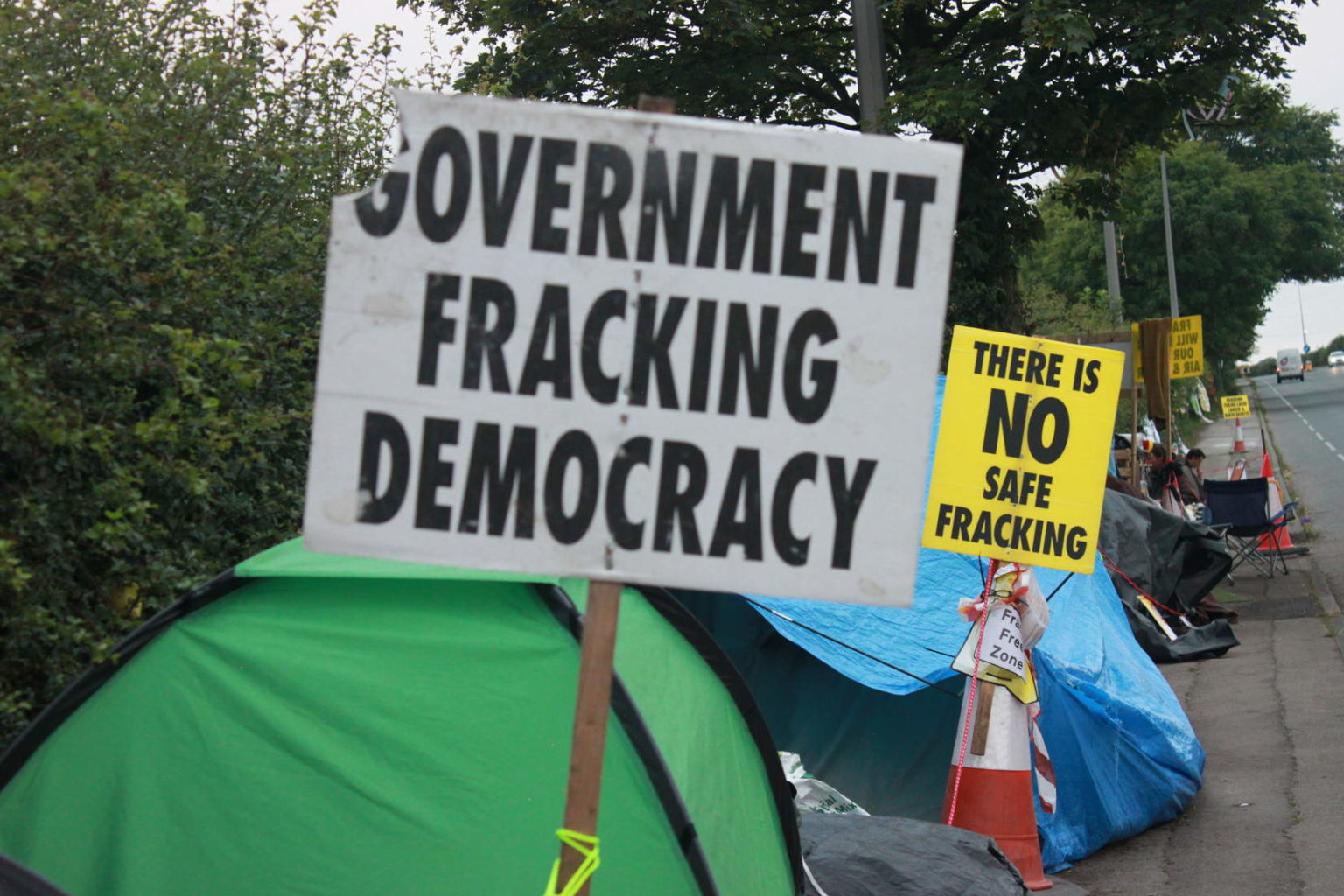The UK government has just released its latest round of data on public attitudes to energy and climate issues. Ruth Hayhurst from Drill or Drop takes a detailed look at the results.
The latest findings from the government survey of attitudes to fracking in the UK puts support at its lowest level since the question was first asked.
The results, published this morning, has support at 16 percent. This is three percentage points down on the previous survey carried out in spring this year and 12 percentage points down on the response in December 2013.
Opposition to fracking was up, at 33 percent, after falls in the previous two surveys. This was the highest level recorded by the survey, also reached in autumn 2016.
The gap between opposition and support was the largest recorded by the survey, at 17 percentage points.
Reaction
This survey, commissioned by Department of Business, Energy and Industrial Strategy (BEIS), is the second carried out since Cuadrilla began work at its shale gas site in Lancashire in January 2017. It is the first since INEOS submitted shale gas exploration applications for Derbyshire and Rotherham.
A spokesperson for Frack Free Lancashire said:
“The trend is evident – this industry continues to lose support day by day in spite of efforts to alternately buy local support and to attack local opposition using the sledgehammer of legal injunctions.
“It is clear that the fracking companies’ attempts to demonise protest are backfiring and that they are failing dismally to get the social licence they need to operate in our communities.
“Many those that expressed an opinion in favour of fracking cited increased employment, lower bills and using less fossil fuels as their reasons. These arguments are pushed strongly by the fracking PR machine but are almost totally without substance. As people become aware of the reality we expect to see a further decline in support for fracking as the scales fall from people’s eyes.”
Elisabeth Whitebread, energy campaigner at Greenpeace UK, said:
“Communities don’t want the unnecessary industrialisation of our countryside for shale gas we don’t need. And more than three-quarters of people support renewables, so the government should listen to their own opinion polls, stay true to their manifesto promise, and support offshore wind and solar instead of a new fossil fuel industry.
“Concern about climate change is at its highest since 2012, and to meet our climate targets, we must leave fossil fuels in the ground. The fracking industry is pulling UK energy policy in entirely the wrong direction and the public is right to be concerned.”
According to the survey, strong support for fracking had fallen to 2 percent, the lowest level recorded.
Strong opposition has risen for the second consecutive survey to 13 percent but is still one percentage point below the highest ever recorded by the survey in March 2016.
Participants who said they neither supported nor opposed fracking remained the largest proportion in the survey at 48 percent. This was down one percent on the previous survey and was the first fall since the survey carried out in June 2015. The number who said they didn’t know was up one percentage point at 3 percent.
Awareness of fracking was 78 percent, up from 75 percent in the previous survey. Participants who said they knew a lot was still only 13 percent, but this figure was up from 10 percent in the spring. Participants who said they had never heard of fracking or shale gas was down slightly at 22 percent.
BEIS said awareness of fracking was highest among participants in social grade AB (90 percent), aged over 65 (90 percent), with incomes over 50,000 (91 percent) and homeowners (88 percent).
Reasons
The most common reason for supporting fracking remained “the need to use all available energy sources” (42 percent). This has continued to rise since December 2106 and the latest figure is an increase on the previous survey of seven percentage points. Other reasons for support, such as reducing dependence on other fossil fuels, cheaper energy bills and reduced dependence on other countries remained fairly constant. But “good for local jobs and investment” fell from 30 percent to 26 percent. “Positive impact on the UK economy” also continues to fall.
“Loss or destruction of the environment” remained the most common reason for opposing fracking. This saw an increase of eight percentage points in this survey to 68 percent. Other reasons, such as “risk of contamination”, “too much risk/uncertainty”, “risk of earthquakes”, “unsafe process” and “use of chemicals” saw falls of between nine and four percentage points.
Of participants who were neutral or did not know whether they supported or opposed fracking, 73 percent said this was because they didn’t know enough about it.
Methodology
The Wave 22 survey for BEIS carried out 2,097 face-to-face interviews in homes among a representative sample of UK adults, aged 16+. The interviews were conducted between 30th June 2017 and 4th July 2017 on the Kantar TNS Omnibus, which uses a random location quota sampling method. The questionnaire was designed by BEIS and Kantar Public drawing on a number of questions from previous surveys.
Main image credit: Laura Creighton/DeSmog UK CC BY–SA 2.0
Subscribe to our newsletter
Stay up to date with DeSmog news and alerts










